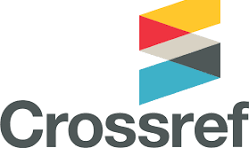Emotional Intelligence and its Role in Enhancing Workplace Collaboration
DOI:
https://doi.org/10.63516/01.04/006Keywords:
Emotional intelligence, workplace collaboration, leadership, performance, organizational climate, professional growthAbstract
Background of the Study: Despite the growing emphasis on emotional intelligence (EI), much-existing research has focused on specific professional relationships, such as those between managers and subordinates, leaving a gap in understanding EI influences among peer-to-peer interactions. As organizational systems evolve, the need for high-functioning, collaborative teams becomes increasingly apparent.
Methodology: This study utilized a mixed-methods design, combining quantitative and qualitative approaches to explore the relationship between EI and workplace collaboration comprehensively. The research was conducted across various settings, including hospitals, financial industries, and IT sectors within Karachi. Employees from these diverse sectors provided a representative sample (n=384) using convenience sampling technique. Data was analyzed using SPSS version 26. Pearson correlation test was applied to assess the correlation between variables.
Results: The EI of the participants was determined, and the analyses revealed that in the domain of self-awareness, n=134 (34.89%) had strength, 156 (40.04%) were in the category of need attention, and n=94 (24.47%) were in development priority category. In managing emotions, strength was the result for n=105 (27.5%) of the participants, and need attention was the finding of n=116 (30.2%) and n=163 (42.44%) were in the development priority category.
Conclusion: EI can be integrated and developed systematically within organizational structures that foster collaboration, foundation, and performance. Despite recognizing its potential for encouraging successful navigation in the current organizational climate, more focused studies and interventions need to be developed and implemented to enhance EI usage and match it to specific context requirements of the workplace.
References
1. Alheet, A. F., & Hamdan, Y. (2021). Exploring the relationship between emotional intelligence and job performance: A study of Jordanian retail industry. International Journal of Entrepreneurship, 25(3), 1-16.
2. Al-Shamaileh, N. (2023). The effect of a training program based on the bar-on model for emotional intelligence to improve body image in Jordan. Dirasat: Educational Sciences, 50(4), 455-469.
3. Alsughayir, A. (2021). The effect of emotional intelligence on organizational commitment: Understanding the mediating role of job satisfaction. Management Science Letters, 11(4), 1309-1316.
4. Alwali, J., & Alwali, W. (2022). The relationship between emotional intelligence, transformational leadership, and performance: A test of the mediating role of job satisfaction. Leadership & Organization Development Journal, 43(6), 928-952.
5. Batool, A., Ahmed, S., Naveed, S., Bilal, M. A., Khan, M. A., & Nawaz, S. (2024). The Effect of Leadership Qualities on Organizational Commitment Among Bureaucrats; Emotional Intelligence as a Moderator. Migration Letters, 21(S6), 146-160.
6. Bechter, B. E., Whipp, P. R., Dimmock, J. A., & Jackson, B. (2023). Emotional intelligence and interpersonal relationship quality as predictors of high school physical education teachers’ intrinsic motivation. Current Psychology, 42(9), 7457-7465.
7. Bru-Luna, L. M., Martí-Vilar, M., Merino-Soto, C., & Cervera-Santiago, J. L. (2021, December). Emotional intelligence measures: A systematic review. In Healthcare (Vol. 9, No. 12, p. 1696). MDPI.
8. Coronado-Maldonado, I., & Benítez-Márquez, M. D. (2023). Emotional intelligence, leadership, and work teams: A hybrid literature review. Heliyon.
9. DrSanthosh Kumar, V., & Basha, S. M. (2022). A study of Emotional Intelligence and Quality of Life among Doctors in PandemicCovid 19. International Journal of Early Childhood, 14(02), 2080-2090.
10. Dugué, M., Sirost, O., & Dosseville, F. (2021). A literature review of emotional intelligence and nursing education. Nurse Education in Practice, 54, 103124.
11. Harahap, M. A. K., Sutrisno, S., Mahendika, D., Suherlan, S., & Ausat, A. M. A. (2023). The Role of Emotional Intelligence in Effective Leadership: A Review of Contemporary Research. Al-Buhuts, 19(1), 354-369.
12. Iftikhar, M., Qureshi, M. I., Qayyum, S., Fatima, I., Sriyanto, S., Indrianti, Y., ... & Dana, L. P. (2021). Impact of multifaceted workplace bullying on the relationships between technology usage, organisational climate and employee physical and emotional health. International journal of environmental research and public health, 18(6), 3207.
13. Jena, L. K. (2022). Does workplace spirituality lead to raising employee performance? The role of citizenship behavior and emotional intelligence. International Journal of Organizational Analysis, 30(6), 1309-1334.
14. Khassawneh, O., Mohammad, T., Ben-Abdallah, R., & Alabidi, S. (2022). The relationship between emotional intelligence and educators’ performance in higher education sector. Behavioral Sciences, 12(12), 511.
15. Krén, H., & Séllei, B. (2021). The role of emotional intelligence in organizational performance. Periodica Polytechnica Social and Management Sciences, 29(1), 1-9.
16. Kumari, K., Abbas, J., Hwang, J., & Cioca, L. I. (2022). Does servant leadership promote emotional intelligence and organizational citizenship behavior among employees? A structural analysis. Sustainability, 14(9), 5231.
17. Liao, S. H., Hu, D. C., & Huang, Y. C. (2022). Employee emotional intelligence, organizational citizen behavior and job performance: a moderated mediation model investigation. Employee Relations: The International Journal, 44(5), 1109-1126.
18. Mekhala, R. S. (2024). Emotional Intelligence and Job Performance. In Emotional Intelligence Matters: A Machine-Generated Literature Overview (pp. 33-99). Singapore: Springer Nature Singapore.
19. Navas, S., Vijayakumar, M., & Sulthan, N. (2022). A review on employees emotional intelligence at the workplace. Journal of Positive School Psychology, 6(8), 5665-5672.
20. Naz, S., Ahmad, S., & Batool, A. (2021). Emotional intelligence and work-life balance: A study of working women teachers in public sector universities. Humanities & Social Sciences Reviews, 9(2), 141-149.
21. Radha, P., & Nirubarani, J. (2024). The impact of emotional intelligence on the conflict resolution in banking sector. Apex Journal of Business and Management, 3(2), 131-142.
22. Riaz, R. (2024). Exploring the influence of emotional intelligence in leaders decision-making within Company A: a qualitative analysis of Daniel Goleman’s theory.
23. Sahoo, B. C., Sia, S. K., Mishra, L. K., & Wilson, M. A. (2023). Workplace ostracism and organizational change cynicism: moderating role of emotional intelligence. Journal of Asia Business Studies, 17(3), 524-538.
24. Singh, A., Prabhakar, R., & Kiran, J. S. (2022). Emotional intelligence: A literature review of its Concept, models, and measures. Journal of Positive School Psychology, 6(10), 2254-2275.
25. Sultana, R., Islam, M. R., Islam, M. T., Jesmin, F., & Ferdous, S. (2021). The relationship between emotional intelligence and organizational performance: an exploratory study in Bangladesh. The Journal of Asian Finance, Economics and Business, 8(8), 513-524.
26. Thapa, P., Bhattarai, H., Bharti, D. V., & Khanal, J. (2023). Impact of emotional intelligence on transformational leadership in selected academic institutions in the Kathmandu, Nepal. Int Multidiscip Res J, 4(4).
27. Ullah, R., Khan, A., & Riaz, T. (2024). Emotional Intelligence in the Workplace: Strategies For Enhancing Employee Performance And Satisfaction. Social Science Review Archives, 2(2), 259-271.
28. Vargas, R. H., Remigio, F. Q., La Riva, M. E. M., García, W. C. M., & Chavez, M. T. C. (2023). Workplace violence and emotional intelligence among nursing professionals at a national hospital in northern Peru. Salud, Ciencia y Tecnología, (3), 887.
29. Vrontis, D., Chaarani, H. E., Nemar, S. E., & Dib, H. (2021). The relationship between managers' emotional intelligence and employees' performance. Journal for International Business and Entrepreneurship Development, 13(2), 177-196.
Downloads
Published
Issue
Section
License
Copyright (c) 2024 Archives of Management and Social Sciences

This work is licensed under a Creative Commons Attribution 4.0 International License.




